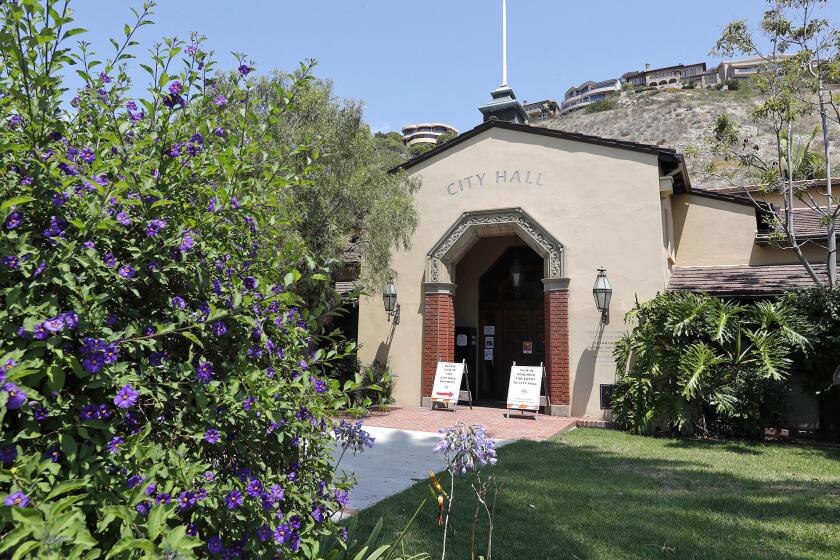Water-quality cops could be coming to your neighborhood
- Share via
June Casagrande
The city has hired three new staff members and installed a trailer as
temporary headquarters for its new water-quality and code enforcement
division.
The division is the main tool in an aggressive new program that
aims to stop pollutants from entering city storm drains.
But City Manager Homer Bludau said that, despite the division’s
hard-line goal, they’ll emphasize a soft touch -- especially at
first.
“We think it’s critical in early days that we don’t be heavy
handed in enforcement,” Bludau said. “Our goal will be to educate on
an increasing awareness about water quality and what causes bad water
quality and how it’s everyone’s responsibility to stop it.”
The three new staff members will join a revamped division that
includes code enforcement officers who are being cross-trained to
oversee water quality compliance. Together, working out of a trailer
just landed on City Hall grounds, they will continue to do the work
of the former code enforcement division but they will add
water-quality enforcement to their repertoire. They will patrol local
businesses and respond to calls to educate residents and businesses
alike about strict new county rules that make it illegal to put
anything but water into a storm drain.
For businesses, this means that hosing down sidewalks is now a
no-no unless the water is captured and kept out of the storm drains.
Technically, it also means that people can’t wash their cars in their
front yards using soap or do anything else that would send pollutants
into storm drains. The city doesn’t plan to crack down; instead,
they’re hoping that improved education can do the trick. But, whether
business or resident, gross abusers will be punished. Fines of up to
$300 a day could be levied against repeat offenders.
Bludau said that it will take about six to nine months for the new
division to be fully up and running, but that the water quality rules
already apply and code enforcement officers are already on the
lookout for opportunities to inform and enforce.
“It is going to require a mind-set change,” Bludau said. “People
do have an incentive to do things on their own to protect water
quality. People live in Newport Beach because they like to be around
water, but on the other side is the fact that people don’t like to be
heavily regulated.”
All the latest on Orange County from Orange County.
Get our free TimesOC newsletter.
You may occasionally receive promotional content from the Daily Pilot.









